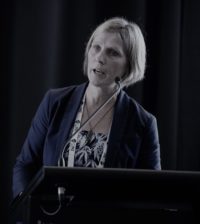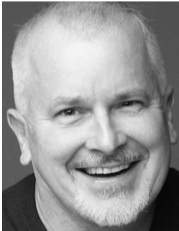
CO-FOUNDER – CROWDDOING, REFRAME IT
Bobby Fishkin co-founded Reframe It after receiving his B.A., magna cum laude, in Philosophy from Yale University. Reframe It has become a strategic partner of the 501c3 M4A Foundation for the CrowdDoing initiative that Reframe It co-leads. The CrowdDoing initiative is designed to bring skilled volunteers to scale the social innovation sector to the scope of systemic change. CrowdDoing achieves this through its venture lab, through partnerships with other social enterprises, Reframe It’s goal has long been to harness collective intelligence to solve social problems. Reframe It has won the McKinsey/Harvard Business Review Management 2.0 Challenge for a process co-invented by Bobby Fishkin, the Deliberative Corporation. Leveraging both Deliberative Polling and digital annotation technology, Bobby co-lead a consultation of the technology community via Reframe It in collaboration with TechCrunch, the Knight Foundation, Silicon Valley Community Foundation. Bobby has presented results from his work on deliberative democracy internationally, including at the Global Citizen Foundation in Geneva, at the European Association of Wind Energy Producers, the Institute For The Future, at Tedx Hayward and the 4th Annual Summit on Public Consultation and Engagement in Toronto. Bobby has presented on impact investment work he has done at SOCAP. Bobby co-led the impact potential assessment of the first Nasdaq mini-IPO, Arcimoto.
Bobby Fishkin through Reframe It co-led the Social Impact Bond feasibility Study for Marin County and the Marin Community Foundation along with Total Impact Advisors and Heritas. Bobby Fishkin and Reframe It co-authored a report for the Center For Global Development about citizen consultation on global issues. Bobby was part of the team which advised and provided training for the Center For Global Development’s deliberative democracy initiative in Tanzania in 2015. Bobby co-authored a report on social enterprise and impact volunteerism’s potential for the Provida Foundation. Bobby Fishkin co-led the Haiti.com initiative to get thousands of volunteers to attempt to help first responders after the Haiti earthquake by finding actionable intelligence from social media reports and inputting them into an Ushahidi map for first responders. Bobby on the board of directors of the Bay Area Social Enterprise Alliance. Earlier in his career, Bobby was a playwright, who co-directed and co-produced his historical play at the Bloomsbury Theatre in London which was also presented in workshops at the Royal Academy of Dramatic Arts (RADA) and at the Theatre Museum, and had a different play of his produced in Texas and New York City. served as a Special Advisor to Tomorrow’s Europe, a Deliberative Democracy project of the European Commission, as a Fellow of the Office of the Mayor of Baltimore and as a fellow of the Richard Florida Creativity Group.

CO-FOUNDER, CE- MATCH4ACTION
Saskia Verraes is a devoted fighter for a better world. One that is socially just, economically inclusive and environmentally restorative. She has years of experience leading collaborative social efforts with vision and engagement and a real focus on action. She works as the executive in charge of future-proofing a large global tourism operator and is also a social entrepreneur, CE and co-founder of the global virtual non-profit Match4Action.
Extremely knowledgeable of the tourism and travel industry, but also of global environmental and human resources, Saskia lends her commitment and energy to initiatives to improve the world through sustainability, social commitment, and responding to need with action. Indefatigable, and idea-driven, Saskia challenges and questions until the most efficient solution is reached from all angles. Saskia focuses on action and delivery towards the end goal, and is not afraid to make decisions.

IMPACT POTENTIAL ANALYSIS LEAD – CROWDDOING, REFRAME IT
Tanuja Prasad has served as CrowdDoing’s Impact Potential Analysis Lead. Impact Potential Analysis is a forward-looking, market-making activity that analyzes social impact innovation gaps and opportunities in order to create transformative impact solutions. CrowdDoing, in partnership with Match4Action, brings together a global group of social impact and sustainability thinkers. Impact Analytics: The use of complexity science as a foundational theory for the management and measurement of social/environmental impact and impact investing.. Tanuja Prasad works on the application of complexity science to complex systems (which includes all human and biological systems) across her work. Tanuja Prasad has served as CTO of NGOs such as Rethink Impact to the Megawatt Hour to the I have a Dream Foundation. Tanuja Prasad has an MS in Electrical Engineering from Vanderbuilt University.

ADVISOR, CROWDDOING
Sarah Bonk has over 20 years of experience in design, technology, and leadership at Fortune 500 companies, with expertise in strategy, organizational development, communications, and project management. She spent nearly 15 years at Apple in the Software, Retail, and Marketing Communications divisions. In her last role, she served as senior manager of over 50 interactive designers and managers for Apple.com. Today she serves as founder and CEO of Business for America (BFA).
While volunteering as a pro bono consultant to several nonpartisan political reform and civic organizations, Bonk recognized that business engagement would be essential to reforming American government. She founded Business for America, a business group dedicated exclusively to educating and engaging the business community to help advance popular, bipartisan political reforms and technology solutions that strengthen representative democracy. In addition, BFA has a Corporate Civic Responsibility initiative and is planning a Conference on Capitalism & Democracy for 2020. Bonk also serves on the board of directors of Take Back Our Republic, a partner organization bringing a conservative perspective to political reform. She has a B.A. in public policy from Oberlin College.

LEAD STAFF, SDG TRANSFORMATIONS FORUM, cROWDDOING PARTNER
Responding to the 21st century’s enormous global challenges and realizing its unsurpassed opportunities require fundamental change – transformation – in our mental models, ways of developing and using technology, structures and institutions, cultures and values, and relationship with the natural environment. The SDG Transformation Forum, is growing systems of people, organizations, and locales, that is developing transformations systems as a critical innovative infrastructure to accelerate this scale of change for a flourishing, inclusive and just planet.
As Lead Staff, Steve Wadell connects diverse groups to take collaborative action and evolve strategic directions in the context of great challenges of paradox, complexity and scale. This follows Steve’s work over 35 years as a consultant, community organizer, educator, research, and collaborative leader to advance knowledge and practice around new organizing forms. He has worked with others as clients, funders, and project partners, including the Global Knowledge Partnership, the UN Global Compact, World Bank, Global Reporting Initiative, Ford Foundation, Humanity United, Civicus, International Youth Foundation, USAID, International Development and Research Centre, Forest Stewardship Council, and Future Earth.
Three key concepts are associated with Steve’s work on transformations: “societal learning and change,” which is a deep collaborative change strategy to address chronic and complex issues; “global action networks”, which is an emerging form of global governance for deep change; and “large systems change” involving individual orientations, organizational structures and societal institutions.
Dozens of publications include the books Societal Learning and Change: Innovation with Multi-Stakeholder Strategies (2005); Global Action Networks: Creating our future together (2011); and Change for the Audacious: a doers’ guide to large systems change for a flourishing future (2016). Steve has a Ph.D. in sociology and an MBA. He a Canadian American living in Boston with his husband.
CHIEF BUSINESS OFFICER – CROWDDOING
Goutam Sinha is a subject matter expert in product management principles transitioning concepts to deliverables and real products; to market leading product with customer and product team success. His prior experiences are in product management in for-profit organizations driving strategy and roadmap, business processes, managing customer commitments, and setting/monitoring business objectives and results. Over the course of his career Goutam has worked in a leadership capacity at a number of Fortune 500 organizations.
Great opportunities exist for non-profit organizations with impact initiatives. Many are still in early concept phases, specifically those driven by data science and analytics. Goutam drives establishing formal product management process in CrowdDoing activities.
CrowdDoing’s Theory of Change- Leverage for ImpacT
There are different kinds of dimensions of leverage for impact. Each dimension can be combined with other dimensions on a per impact-area basis. CrowdDoing aims to champion systemic change through supporting approaches that have leverage for impact.
Dimensions of Leverage for Impact:
| Dimension | Impact |
|---|---|
| Accretion, dilution, stock-swapping | Housing, expert collaboration, democratize-investment banking, diversify angel-employee ownership |
| Prevention | Fire, floods, health, crime, local air pollution through prevention-derivatives |
| Under-utilized history, under-utilized evidence, silos | Medicinal Foods, Biophelia/living walls cost-benefit meta-analysis, implicit marginalia, marginalia |
| Under-utilized social innovation | Social innovation replication to region per social innovation gap |
| Technology | Medicinal foods, implicit marginalia, living walls. |
| Under-utilized waste/waste to value/circular economy | Agricultural waste paper through Tree Zero |
| Under-utilized capacity of people to change their minds through thinking together | Deliberative democracy creating new majorities and new super-majorities for what people would prefer after dialoging within a diverse context |
| Under-utilized life-long service learning, pro bono, virtual volunteer collaboration, diversity of global expertise among people who care about a problem | CrowdDoing resourcing mechanism |
CrowdDoing: Leveraging Micro-Leadership to Make Aspirational Goals Achievable and Preventing Macro-leader Burnout
Current social science around business leadership reveals gaps that are large and growing. According to one recent Deloitte study: ”Leadership remains the No. 1 talent issue facing organizations around the world, with 86 percent of respondents in our survey rating it as “urgent” or “important.” Only 13 percent of respondents say they do an excellent job developing leaders at all levels—the largest “readiness gap” in our survey.” Readiness for leadership is most efficiently achieved through scaling the community of people who take on practices of meaningful leadership across stages of life to diversify the pool of leaders. Leadership as a practice can be developed through alternatives to the totalistic, high stakes stressful kinds of leadership that our society normalizes today.
Leadership norms today are established through at-scale responsibility that can be termed a form of “macro-leadership”. Macro leaders are individuals charged with being responsible for the entire organization’s success and failure. They are holistically responsible. When a person is a C-Level executive at an organization, or on that organization’s board of directors that is full macro leadership. The mission of the organization is accepted as a matter of leadership by the board of directors and executive team. Macro-leadership can also be for a President of a division or the leader for a product. Macro-leadership is about the person to whom ultimate responsibility is funneled through an organization’s architecture. Macro-leadership takes on institutional responsibility for the health of an organization and the ability of that organization to achieve the goals of its stakeholders. Most of the focus in leadership studies has been on “macro leaders”.
We only have a shortage of leadership in the world because what first comes to mind when people think about leadership is what we at CrowdDoing would refer to as Macro Leadership.
CrowdDoing volunteer to become a Micro Leader
Almost anyone can have a role as a volunteer micro leader adopting a dimension of systemic change through CrowdDoing’s impact venture lab and our portfolio of social innovations and social enterprises that we champion at CrowdDoing. Systemic change is a consequence of under-utilized capacities being deployed to increase the density of social innovations relevant to solving a particular societal challenge. Social enterprises take on a moral burden and a psychological burden that can be proportionate to their additionality. If you as a social entrepreneur really believe in a cause, and believe that no one else will take that cause on in the way you will if you don’t, then your failure to act may be seen as putting the stakeholders at risk. Micro-leadership is adopting responsibility for a dimension of a societal challenge in collaboration with others. Macro-leadership is taking responsibility for an entire organization; if that organization has “natural monopoly” on a social innovation category that is important vis a vis a social cause, the pressure of that social cause and organizational responsibility all fall on the macro-leader. Micro-leadership allows each of us to adopt a problem, collaborate across disciplinary lines, research, experiment, and find a way to contribute to the world’s capacity to solve or address that challenge.
CrowdDoing leverages what the open source community has long known about the potential efficacy of micro-leadership. Micro-leadership represents the micro-level of responsibility for a specific dimension of a social challenge. It doesn’t mean they are partially responsible Part-time volunteers can adopt a social enterprise challenge.It creates a diversity of roles that allow individuals to take on flexible part-time levels of responsibility that allow them to address a specific dimensions of a social challenge. CrowdDoing recognizes the invaluable role that micro-leadership role diversification can play in support of social innovation, social enterprise and systemic change. CrowdDoing engages in capacity-building for achieving Sustainable Development Goals through the practice of micro-leadership.


